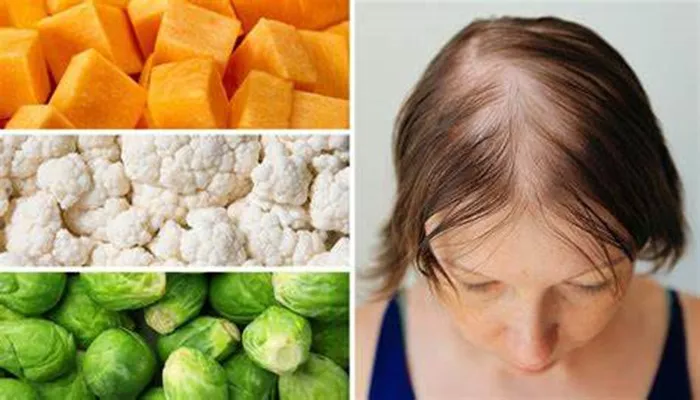Healthy, strong hair is often a reflection of overall well-being, and nutrition plays a crucial role in maintaining its vitality. While genetics, hormones, and environmental factors influence hair health, certain vitamins are fundamental for promoting growth, preventing hair loss, and improving texture. Understanding these essential vitamins and incorporating them into your diet can make a significant difference in the quality and growth of your hair.
The Role of Vitamin A in Hair Growth
Vitamin A is a powerful antioxidant that supports the production of sebum, the natural oil secreted by the scalp. Sebum keeps hair moisturized, preventing dryness and breakage. Additionally, vitamin A aids in the growth of cells, including hair follicles, which are among the fastest-growing tissues in the body.
However, balance is key—too much vitamin A can lead to hair loss, while a deficiency may cause dryness and scalp issues. Foods rich in vitamin A include sweet potatoes, carrots, spinach, kale, and dairy products. If you’re considering supplements, it’s best to consult a healthcare provider to avoid excessive intake.
How B Vitamins Support Hair Health
The B vitamin family, particularly biotin (B7), niacin (B3), and cobalamin (B12), plays a vital role in hair growth and strength.
Biotin (Vitamin B7)
Biotin is perhaps the most well-known vitamin for hair health. It helps convert nutrients into energy and supports keratin production, the protein that makes up hair. A deficiency in biotin can lead to brittle hair and hair loss. While biotin supplements are popular, most people get enough from their diet. Foods like eggs, nuts, seeds, and whole grains are excellent sources.
Niacin (Vitamin B3)
Niacin improves blood circulation to the scalp, ensuring that hair follicles receive adequate oxygen and nutrients. A deficiency may result in thinning hair. Chicken, turkey, fish, and peanuts are rich in niacin.
Cobalamin (Vitamin B12)
Vitamin B12 is essential for red blood cell formation, which carries oxygen to hair follicles. A deficiency can lead to hair thinning or premature graying. Animal products like meat, fish, and dairy are primary sources, so vegetarians and vegans may need supplements.
The Power of Vitamin C for Hair Strength
Vitamin C is a potent antioxidant that protects hair follicles from oxidative stress caused by free radicals. It also plays a crucial role in collagen production, a protein that strengthens hair and prevents breakage.
Moreover, vitamin C enhances iron absorption, a mineral vital for hair growth. Citrus fruits, strawberries, bell peppers, and leafy greens are excellent sources. Since the body doesn’t store vitamin C, regular intake through diet or supplements is necessary.
Vitamin D and Its Impact on Hair Follicles
Vitamin D is often associated with bone health, but it also plays a role in hair follicle cycling. Low levels of vitamin D have been linked to alopecia, a condition that causes hair loss. Sun exposure is the best natural source, but fatty fish, fortified dairy, and supplements can help maintain adequate levels.
Vitamin E: The Antioxidant for Scalp Health
Vitamin E is another powerful antioxidant that helps reduce oxidative stress on the scalp, promoting a healthy environment for hair growth. It also improves blood circulation, ensuring that hair follicles receive the nutrients they need. Nuts, seeds, spinach, and avocados are rich in vitamin E. Some people apply vitamin E oil directly to the scalp to enhance moisture and reduce breakage.
Other Nutrients That Complement Hair Growth
While vitamins are crucial, minerals like iron, zinc, and omega-3 fatty acids also contribute to hair health. Iron deficiency is a common cause of hair loss, especially in women. Zinc supports hair tissue growth and repair, while omega-3s nourish hair follicles and reduce inflammation.
Final Thoughts on Vitamins for Hair Growth
A well-balanced diet rich in essential vitamins and minerals is the foundation for healthy hair growth. While supplements can help fill nutritional gaps, whole foods should always be the primary source. If you experience significant hair loss or thinning, consulting a healthcare professional can help identify underlying deficiencies or conditions. By nourishing your body with the right nutrients, you can support strong, vibrant hair from the inside out.
Related Topics:
Can You Naturally Thicken Your Hair in Just One Month?
How Can You Keep Your Styled Hair Perfect Overnight?
How to Get Smooth Hair in One Wash?


